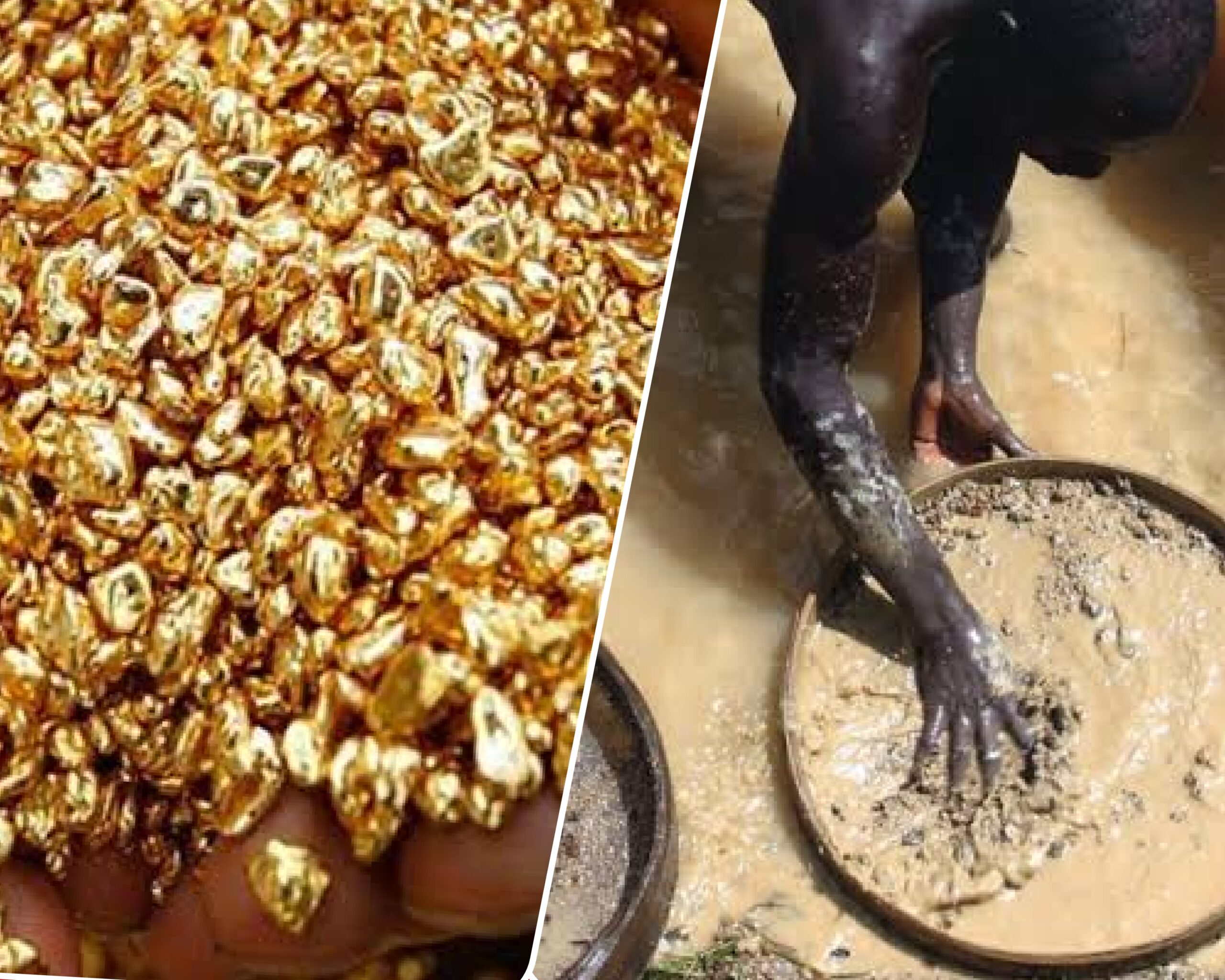Ghana, Africa’s largest gold producer, has officially inaugurated its first-ever gold refinery, marking a significant milestone in the country’s efforts to extract greater value from its abundant natural resources. The Royal Ghana Gold Refinery, a state-of-the-art facility, is set to process up to 400 kilograms of gold daily, predominantly sourced from the country’s extensive network of artisanal and small-scale mines.
This strategic move aligns with Ghana’s broader objectives to formalize and strengthen its gold mining sector, which has long been plagued by illegal mining activities and gold smuggling. The refinery represents a critical step towards improving transparency, accountability, and economic benefits from the gold trade.
Boosting the Local Gold Industry
Ghana has a rich history of gold mining, with its past as the “Gold Coast” under British colonial rule symbolizing its deep-rooted connection to the precious metal. Today, Ghana is the largest gold producer in Africa, contributing approximately 4 million ounces annually to the global market. Despite this impressive output, a substantial portion of the gold has been extracted by artisanal miners, who often operate outside the formal economy.
The Royal Ghana Gold Refinery is poised to change this dynamic by providing a legitimate and efficient avenue for artisanal and small-scale miners to refine and sell their gold. Officially, these miners contribute about a third of the country’s annual gold output. However, the exact figures could be higher due to the significant amount of gold that is illegally mined and smuggled out of the country by local operators, known as ‘galamsey.’
Combatting Gold Smuggling and Enhancing Transparency
The establishment of the refinery is expected to be a game-changer in reducing the rampant gold smuggling that has plagued Ghana for years. Bank of Ghana Governor Ernest Addison emphasized the critical role the refinery will play in addressing this issue. “This refinery will play an important role in reducing gold smuggling, which has been a major challenge for the country over the years by providing a ready market for artisanal and small-scale miners,” Addison noted.
By offering a secure and reliable market for locally mined gold, the refinery is anticipated to diminish the incentives for illegal trade, thereby promoting greater transparency and accountability in the gold sector. This, in turn, could help Ghana’s gold industry align more closely with international standards and best practices.
Foreign Investment and Ownership Structure
The Royal Ghana Gold Refinery is owned predominantly by Rosy Royal Minerals Ltd., an Indian firm that holds an 80% stake in the facility. The remaining 20% is owned by the Bank of Ghana, reflecting the government’s commitment to playing an active role in the sector’s development.
This partnership with a foreign entity highlights Ghana’s openness to international investment as a means of enhancing its mining infrastructure and capabilities. The refinery’s establishment is also part of a broader trend across Africa, where countries are increasingly seeking to add value to their natural resources before exporting them.
Strengthening Ghana’s Foreign Exchange Reserves
The refinery’s operations dovetail with the central bank’s ongoing efforts to bolster Ghana’s foreign-exchange reserves. Over the past few years, the Bank of Ghana has been actively purchasing gold from small-scale miners as part of a strategy to build up its reserves in response to a depreciating currency.
Ghana’s approach has served as a model for other African nations such as Uganda and Madagascar, which are either following suit or contemplating similar measures. By refining gold domestically, Ghana aims to increase the value of its gold reserves and enhance the overall stability of its economy.
A Continental Shift Towards Value Addition
The inauguration of the Royal Ghana Gold Refinery is emblematic of a broader continental shift towards value addition in Africa’s natural resource sectors. Historically, African countries have exported raw materials with minimal processing, thereby forfeiting significant economic gains. By refining gold locally, Ghana seeks to capture more of the value chain, creating jobs, increasing revenue, and strengthening its industrial base.
Finance Minister Mohammed Amin Adam underscored this point, lamenting the missed opportunities due to the lack of value addition in the past. “Our failure to successfully ensure value addition across the entire resource chain has meant that we have been unable to properly harness the benefits of being among the top 10 gold producers in the world,” Adam stated.
Aspiring for International Recognition
Looking ahead, Ghana’s government is in discussions with the London Bullion Market Association (LBMA) to obtain certification for the Royal Ghana Gold Refinery. Achieving LBMA status would significantly enhance the marketability of Ghana’s gold, ensuring it meets the stringent sourcing and ethical standards required by the world’s leading bullion markets.
Eric Santeng, a director at Royal Ghana Gold, expressed optimism about the refinery’s prospects for achieving this prestigious certification. “If we work hard, we can achieve LBMA status,” Santeng said. “This status is within our grasp but requires the concerted effort of all.”
Being listed on the LBMA’s Good Delivery List would mark a significant achievement for Ghana, making it easier to trade its gold on international markets and positioning the country as a key player in the global gold industry.
Conclusion: A New Chapter in Ghana’s Gold Story
The launch of the Royal Ghana Gold Refinery signals the beginning of a new chapter in Ghana’s storied history as a gold producer. By refining gold domestically, the country is poised to unlock greater economic benefits, combat illegal mining practices, and assert itself more strongly on the global stage. This development not only bodes well for the future of Ghana’s mining industry but also sets a precedent for other African nations looking to maximize the value of their natural resources.
